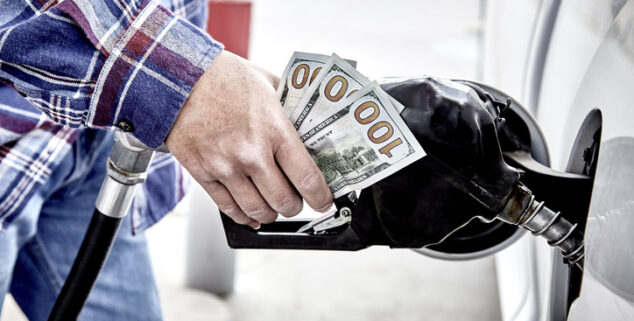Opinion
Rising gas prices undermine the work of small business advocates
 Rising gas prices. Image by wingedwolf
Rising gas prices. Image by wingedwolfOPINION – As President of the Multicultural Business Alliance, I spend much of my time on the road, traveling across California to meet with the small business owners we support. These are hardworking entrepreneurs—many from marginalized communities—doing everything they can to survive in one of the most expensive states in the country. I drive nearly 20 hours a month, often covering multiple counties in a single day. This isn’t just my commute— it’s core to how I serve others. And lately, it’s become unaffordable.
California consistently has the highest gas prices in the nation, sometimes exceeding $6 per gallon. While seasonal shifts and global markets play a role, state policies are a big reason why we pay so much more at the pump. Regulations like the cap-and-trade program, the Low Carbon Fuel Standard, and a long list of taxes and fees all contribute to the cost.
And things are about to get worse. Starting this July, new fuel regulations and another gas tax increase could add up to 65 cents more per gallon. That’s not just frustrating—it’s financially destabilizing for people who rely on their vehicles for work. For someone like me, who often drives hundreds of miles a week to support small businesses, it’s an unsustainable expense.
I believe in clean energy and responsible environmental policy. But California’s approach is punishing the very communities it claims to protect. There’s an assumption that we can all just switch to electric vehicles (EVs). That may work in theory, but not in reality.
My job demands flexibility and distance, something most EVs can’t deliver without multiple recharges. And the barriers don’t end there. EVs are expensive. Charging stations are limited and often overcrowded. Not everyone lives in a home where installing a charger is possible. Many of our members rent or live in multifamily units without access to private parking. These are facts that too often get overlooked by policymakers.
For super commuters, tradespeople, farmworkers, and small businesses, gas-powered vehicles are still a necessity. But when a single fill-up costs $80 or more, it’s clear we’re being priced out of our livelihoods.
The consequences go beyond individual hardship. When I visit our members, I hear the same story: rising fuel costs mean higher delivery expenses, tighter margins, and difficult choices—cutting hours, raising prices, or delaying growth plans. The pain at the pump doesn’t stay there. It ripples through our local economies and into our communities.
If California truly wants to lead the nation on climate, it must also lead with equity. That means designing policies that reflect the reality of all Californians, not just those who can afford new technology or live in EV-friendly neighborhoods.
I’m not asking for a rollback of our environmental goals. I’m asking for policies that reflect the reality of working Californians who travel for a living, serve their communities, and fuel the local economy with every mile they drive.
Every day, I get back in my car and head out to support the businesses that keep California strong. But with each mile, it’s clearer: the state’s current path is not sustainable for those of us doing the work on the ground. It’s time we all raise our voices and demand our legislators to tackle California’s affordability crisis.
Diana Ordaz-Cherrington is President of the Multicultural Business Alliance.
Want to see more stories like this? Sign up for The Roundup, the free daily newsletter about California politics from the editors of Capitol Weekly. Stay up to date on the news you need to know.
Sign up below, then look for a confirmation email in your inbox.

Leave a Reply